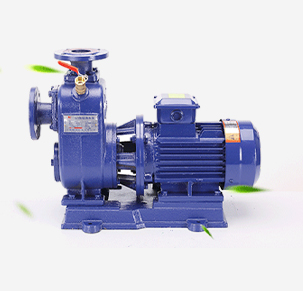Icelandic
- Afrikaans
- Albanian
- Amharic
- Arabic
- Armenian
- Azerbaijani
- Basque
- Belarusian
- Bengali
- Bosnian
- Bulgarian
- Catalan
- Cebuano
- Corsican
- Croatian
- Czech
- Danish
- Dutch
- English
- Esperanto
- Estonian
- Finnish
- French
- Frisian
- Galician
- Georgian
- German
- Greek
- Gujarati
- Haitian Creole
- hausa
- hawaiian
- Hebrew
- Hindi
- Miao
- Hungarian
- Icelandic
- igbo
- Indonesian
- irish
- Italian
- Japanese
- Javanese
- Kannada
- kazakh
- Khmer
- Rwandese
- Korean
- Kurdish
- Kyrgyz
- Lao
- Latin
- Latvian
- Lithuanian
- Luxembourgish
- Macedonian
- Malgashi
- Malay
- Malayalam
- Maltese
- Maori
- Marathi
- Mongolian
- Myanmar
- Nepali
- Norwegian
- Norwegian
- Occitan
- Pashto
- Persian
- Polish
- Portuguese
- Punjabi
- Romanian
- Russian
- Samoan
- Scottish Gaelic
- Serbian
- Sesotho
- Shona
- Sindhi
- Sinhala
- Slovak
- Slovenian
- Somali
- Spanish
- Sundanese
- Swahili
- Swedish
- Tagalog
- Tajik
- Tamil
- Tatar
- Telugu
- Thai
- Turkish
- Turkmen
- Ukrainian
- Urdu
- Uighur
- Uzbek
- Vietnamese
- Welsh
- Bantu
- Yiddish
- Yoruba
- Zulu
Telephone: +86 13120555503
Email: frank@cypump.com
jan . 01, 2025 05:39 Back to list
Exploring Applications and Benefits of Industrial Submersible Pumps for Various Industries
Industrial Submersible Pumps An Overview
Industrial submersible pumps play a vital role in various sectors, from wastewater management to irrigation and construction. Designed to operate underwater, these pumps are engineered to efficiently move fluids from one location to another while submerged. Their unique design and operational features make them an essential component in many industrial applications.
What is an Industrial Submersible Pump?
An industrial submersible pump is a type of pump that is submerged in the fluid it is designed to pump. Unlike standard pumps, which can be located above the surface and require a suction mechanism to draw fluid up, submersible pumps are placed directly in the fluid, eliminating the need for priming. This design allows them to operate at greater depths and handle larger volumes of liquid more effectively.
Key Components and Functionality
A typical submersible pump consists of a motor, impeller, and a sealed casing. The motor provides the necessary power to drive the impeller, which then propels the liquid upward through a discharge pipe. The entire assembly is designed to be water-tight, which protects the motor from the pumped liquid and ensures safe operation even in challenging conditions.
Applications of Submersible Pumps
1. Wastewater Management One of the primary applications for industrial submersible pumps is in wastewater management systems. These pumps are capable of handling a mix of solids and liquids, making them ideal for sewage treatment plants and stormwater systems. Their ability to function efficiently in submerged conditions allows for effective waste removal and treatment.
2. Construction Submersible pumps are widely used in construction sites where groundwater accumulation can hinder operations. They help dewater construction trenches and excavations, allowing workers to operate in dry conditions. By managing groundwater levels, these pumps contribute to the safety and efficiency of construction projects.
industrial submersible pump

3. Irrigation In agricultural settings, submersible pumps are employed for irrigation purposes. They can draw water from deep wells and reservoirs, providing a reliable water source for crops. This capability allows farmers to irrigate vast areas, improve yield, and ensure the sustainability of their farming operations.
4. Mining The mining industry often relies on submersible pumps to remove water from mine shafts and prevent flooding. These pumps are essential in ensuring safe working conditions and enabling the extraction process to continue without interruptions. With their rugged design, they can handle abrasive and corrosive fluids commonly found in mining operations.
Advantages of Submersible Pumps
Submersible pumps offer several advantages, making them a preferred choice in many industries. First, their design allows for efficient pumping without the need for complex piping systems. This simplicity can reduce installation and maintenance costs. Additionally, because they operate underwater, submersible pumps are less likely to lose prime and can handle varying levels of liquid.
These pumps also tend to be more energy-efficient compared to their surface counterparts, as they do not have to work against the suction lift. This efficiency can lead to lower operational costs over time, making them a cost-effective solution for long-term applications.
Considerations for Use
While industrial submersible pumps are highly effective, there are several factors to consider before selection and installation. The type of fluid being pumped, the depth of submersion, flow rate requirements, and the presence of solids are all critical factors that influence pump selection. It is important to choose a pump designed for the specific application to ensure optimal performance and longevity.
Conclusion
In conclusion, industrial submersible pumps are essential tools across various sectors, providing reliable and efficient pumping solutions for a range of applications. Their unique design enables them to operate effectively in submerged conditions, making them ideal for wastewater management, construction, irrigation, and mining. As industries continue to evolve, the demand for high-performance submersible pumps is likely to grow, driving innovations and improvements in pump technology. Investing in the right equipment can yield significant benefits, enhancing operational efficiency and contributing to the overall success of industrial processes.
-
High-Performance Air Pumps for Sand & Gravel | Efficient Transport
NewsAug.03,2025
-
ISG Series Vertical Pipeline Pump - Chi Yuan Pumps Co., LTD.|Energy Efficiency, Corrosion Resistance
NewsAug.03,2025
-
ISG Series Pipeline Pump - Chi Yuan Pumps | Energy Efficiency&Compact Design
NewsAug.03,2025
-
ISG Series Vertical Pipeline Pump - Chi Yuan Pumps Co., LTD.|High Efficiency, Low Noise, Durable
NewsAug.02,2025
-
ISG Series Vertical Pipeline Pump - Chi Yuan Pumps | High Efficiency, Low Noise
NewsAug.02,2025
-
ISG Series Vertical Pipeline Pump- Chi Yuan Pumps Co., LTD.|High Efficiency&Compact Design
NewsAug.02,2025










